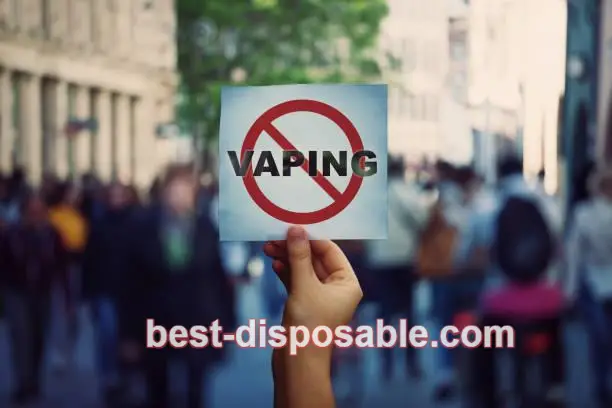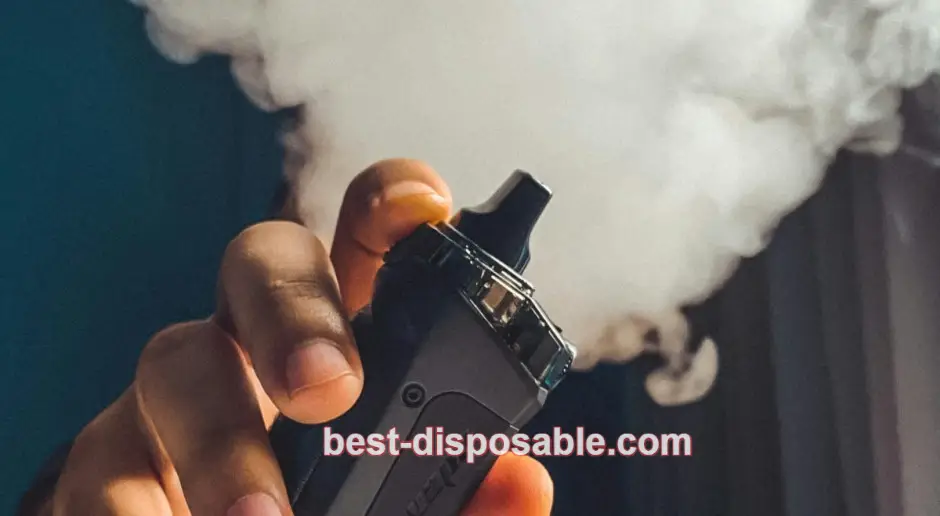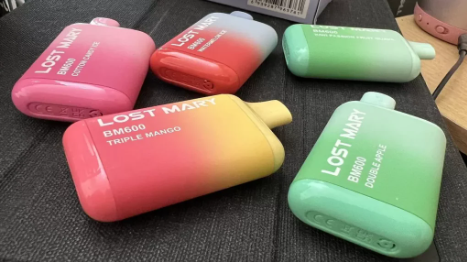Washington, D.C. — The U.S. Supreme Court is set to hear an intense debate this Monday over whether the FDA (Food and Drug Administration) can regulate and restrict the sale of flavored vapes. At the center of the controversy are two vape companies, Triton Distribution and Vapetasia LLC, who have filed legal challenges after the FDA rejected their applications for selling flavored e-liquids. The decision could have significant ramifications for both the vaping industry and public health across the United States.

What’s at Stake?
At the heart of this battle is the question of whether the FDA has overstepped its authority by rejecting the applications of vape companies looking to sell flavors like “Frozen Pineapple Express,” “Suicide Bunny’s Milk and Cookies,” “Killer Custard Blueberry,” and “Juicy Jimmy’s Peach Strawberry.” These companies argue that the ability to offer a variety of flavors helps adult smokers switch from traditional cigarettes to less harmful vaping alternatives. In contrast, the FDA has raised concerns that these appealing flavors contribute to a surge in vaping among teens, leading to a public health crisis.
While the FDA’s stance is rooted in protecting young people from the dangers of nicotine addiction, the decision to ban flavored vapes has sparked outrage from vaping industry leaders, adult smokers, and even political figures like former President Donald Trump, who has repeatedly voiced his support for the vaping industry and its role in reducing smoking-related harm.
Trump’s Return to Vape Advocacy
In a post on his social media platform, Truth Social, former President Donald Trump made his position crystal clear. “Kamala and Joe want to ban everything, killing small businesses across the country,” Trump wrote. “I’ll save vaping once again!” Trump, who previously signed into law a measure restricting flavored e-cigarettes, is now promising to reverse the regulatory tide in favor of the industry. With the possibility of a second presidential term, Trump’s commitment to protecting the vaping market is likely to become a central issue in his campaign, especially as he positions himself against what he sees as excessive government intervention.
The Public Health Debate: Harm Reduction vs. Teen Vaping Epidemic
The FDA’s stance on flavored vapes stems from its concern about the alarming rise of vaping among teenagers. The flavors in e-liquids, which can resemble candy or fruit drinks, make vaping more attractive to younger users. According to the FDA, these flavored products pose a significant risk to public health, as they may lead teens to become addicted to nicotine, creating a new generation of smokers. The agency argues that, while vaping may help some adults quit smoking, the benefits do not outweigh the potential harm caused by increased use among youth.

In contrast, vape manufacturers argue that offering flavored e-liquids is essential for helping adult smokers transition away from combustible cigarettes, which are known to cause a wide range of deadly health conditions. The vaping industry contends that flavors like mint, fruit, and dessert varieties make the switch to vaping more palatable for adult smokers who might otherwise struggle to quit. They point to research that suggests smokers who switch to vaping are less likely to experience the long-term health problems associated with traditional cigarettes.
The Legal Battle: Can the FDA Ban Flavored Vapes?
This issue has been winding its way through the legal system for years, and now the nation’s highest court is preparing to weigh in. The case stems from a legal dispute between the FDA and two vape companies — Triton Distribution and Vapetasia LLC. These companies applied to sell flavored e-liquids but had their requests rejected by the FDA. The agency’s rationale was that the sale of flavored vapes posed a “known and substantial risk” to young people, a risk it argued outweighed the benefits of helping adults quit smoking.
However, the Fifth Circuit Court of Appeals sided with the vape companies, ruling that the FDA’s decision to reject the flavored e-liquid applications was “arbitrary and capricious.” This ruling effectively undermined the FDA’s authority to regulate flavored vapes and led to the current legal showdown. Now, with the Biden administration appealing this decision, the Supreme Court will decide whether the FDA’s authority to regulate e-cigarettes and their flavors is constitutionally sound.
The Vaping Industry’s Pushback
The vape companies involved in this case argue that they are being unfairly targeted by the FDA’s flavor bans, which they claim are not based on sound scientific evidence. Triton and Vapetasia argue that flavored vapes are an important tool for adult smokers looking for a less harmful alternative to cigarettes. They claim that the appeal of flavors like “Killer Custard Blueberry” and “Juicy Jimmy’s Peach Strawberry” helps adult smokers transition away from traditional cigarettes and significantly reduces their exposure to the harmful chemicals found in combustible tobacco products.
Both companies have pointed out that the FDA has yet to provide definitive evidence showing that flavored vapes contribute to a greater number of teen smokers. Furthermore, they argue that the agency has not sufficiently demonstrated that flavored vapes pose a higher risk to public health than other consumer products, such as sugary drinks or flavored tobacco products, which have long been legally available.
FDA’s Counterarguments: Protecting Public Health
On the other hand, the FDA remains firm in its position that flavored vapes are a “gateway” to nicotine addiction for teenagers, whose use of e-cigarettes has skyrocketed in recent years. The agency points to surveys showing that a large percentage of high school students have experimented with vaping, and many of them cite flavored e-liquids as a key factor in their decision to try e-cigarettes. The FDA has also highlighted the fact that vaping among teens can lead to long-term nicotine addiction, which can have detrimental effects on brain development and increase the likelihood of smoking combustible cigarettes in the future.
Additionally, the FDA argues that the vaping industry has failed to provide sufficient evidence that flavored vapes are an effective smoking cessation tool. While the agency acknowledges that some adult smokers may benefit from using e-cigarettes, it maintains that the risks of increased teen vaping outweigh these potential benefits.

What Happens Next?
As the case moves to the Supreme Court, all eyes will be on how the justices interpret the balance between public health and personal choice. If the Court rules in favor of the FDA, it could have a sweeping effect on the vaping industry, potentially leading to more restrictive regulations and a crackdown on flavored e-liquids. On the other hand, a ruling in favor of the vape companies could pave the way for a more lenient approach to e-cigarette regulations, allowing flavored vapes to remain widely available in the marketplace.
The outcome of this case will also have political implications, as both sides of the debate — public health advocates and vaping industry supporters — continue to mobilize their respective bases. If Trump is successful in regaining the presidency, it’s possible that his administration could take steps to reverse any regulations that restrict flavored vapes, further complicating the landscape for policymakers.
A Changing Landscape for Vape Regulation
This case could be just the beginning of a larger regulatory battle surrounding vaping. With new evidence emerging about the long-term effects of e-cigarettes, and with the possibility of changing political leadership, the future of vaping regulation remains uncertain. Health experts, public health organizations, and vaping advocates will continue to weigh in on the debate, as the Supreme Court’s decision could set a significant legal precedent for how the government regulates products that straddle the line between harm reduction and public health risk.
As the vaping debate rages on, one thing is clear: the battle over flavored vapes is far from over. The stakes couldn’t be higher for the millions of Americans who use e-cigarettes, the industries that sell them, and the public health experts who are working to protect our nation’s youth from a new wave of nicotine addiction.


This article gives a clear breakdown of the Supreme Court’s upcoming decision on banning flavored vapes. It’s informative and easy to follow, though I wish it had more on the health impacts. Still, a solid read for anyone interested in the vape debate.